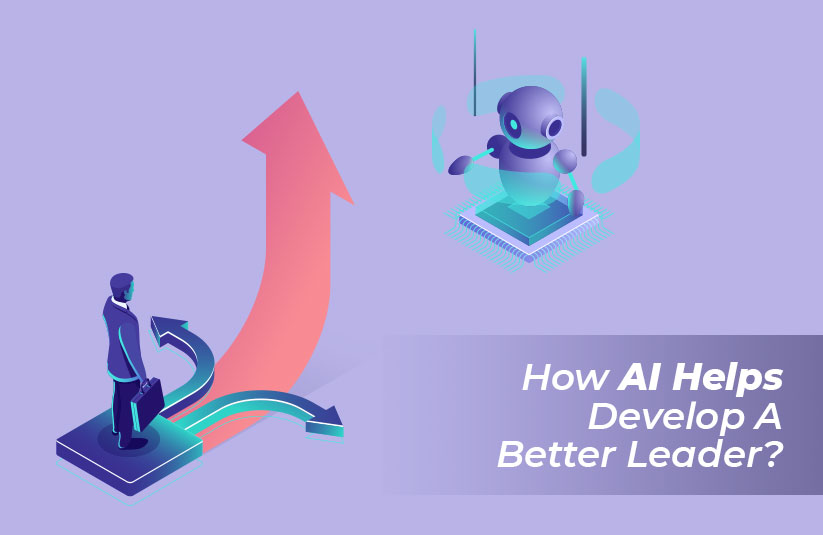Machines have always helped improve how people work, from simple machines that help with manual physical work, to more advanced ones that help with more complicated tasks like computation and data analysis. With the developments in technology, especially in AI, it’s not surprising that AI is involved with almost every aspect of the workplace.
Artificial Intelligence or AI is a machine’s ability to demonstrate human-like capabilities. It mimics human intelligence in machines making them able to learn from algorithms, adapt to and process large amounts of data, and handle repetitive tasks without human assistance. AI is often thought to eventually replace humans in the workplace, but instead of being viewed as a threat, AI can be viewed as collaborators that aid humans play to their strength.
Traits like emotional intelligence, organizational knowledge, critical thinking, a sense of reasoning and moral judgment, and creativity, among others, are needed in a workplace, especially in a leader; and while there are processes and tasks that AI can take over, the need for a human element is still there. AI may not be able to replace these human qualities but here are a few ways AI can help with leadership development.
1. Innovation
A good leader sees beyond the present and is driven by what a company can become. They give others the freedom to discuss and develop new ideas and are open to taking risks and inspire others to think outside of the box. Being open to new ideas could entail relying on not only employees’ capabilities, but also embracing new technology to support and enhance these capabilities as well.
2. Communication
Being able to communicate well is an essential part of being a leader. Getting ideas across and through to others may not always end up as successful as planned but through data analysis, AI can determine a presentation’s success rate and foresee what interaction would best keep an audience engaged. Technologies can evaluate presentation skills and feedback from these programs can help you gauge how to better deliver presentations and communicate effectively.
3. Task Delegation
Task delegation is important to maximize employees’ productivity and performance. Having employees repeatedly work on the same tasks may eventually bore them and burn them out for the lack of things that challenge them or motivate them at work. Having and using the technology to take care of mundane and repetitive tasks can give employees more time to work on more challenging tasks and hopefully deliver results that may not only positively impact their performance as individuals but the company as a whole as well.
4. Good Decision-Making and Problem-Solving
Good leaders can make decisions based on judgment backed up with well-researched information and ample data. Being able to gather information from large collections of data and the ability to scan through numerous sources for the right information can help leaders make impactful decisions that can influence a company’s present and future. In the same way that having the right data can influence decision-making, having not only the right information but the right analytics and predictions can assist leaders in problem-solving.
5. Objectivity
Since machines have no innate ability to discriminate, the information they provide is unbiased unless filters and modifiers are used. Being able to access impartial data can give people with decision-making authority a wider view on matters of importance and consider acting or deciding based on looking at things from a different and more objective perspective.
6. Open to Learning New Things
Being open to new things may be for personal gain and a company’s benefit as well. For instance, using AI technology can make processes streamlined and more cost-efficient. Hospitals used to rely on paper charting for patient information but with new technology available, medical staff can update patient information in real-time, making medical records doctors and other staff need easy to find and readily available.
Hospital staff also spend less time doing unnecessary paperwork since everything is online and in one system. Once leadership in a workplace can embrace new practices or technologies, employees or other subordinates are more likely to follow suit as well.
7. Accountability
In a broader sense, accountability is owning up to commitments, being responsible for decisions made, and admitting mistakes if there are any. Leaders who are accountable set distinct targets and goals and give honest and constructive feedback. Feedback in the form of employee performance reviews may not be able to gauge an employee’s full potential, but supplementing these with AI-led performance feedback systems may be able to deliver more accurate data-driven results.
While giving feedback is important as a leader, being able to receive and act on feedback from employees should be given as much value as well.
8. Agility
Agile leaders have a response to sudden change and uncertainty; they are also quick to make decisions and can take immediate action in a crisis. While it’s important to be able to respond to scenarios quickly, it’s also important to have the right reasons and data to back these actions with. AI’s strength is in the ability to gather and process data to aid people in decision-making; with the right information readily available, action taken is not only quicker but is also more informed.
9. Leadership in the Age of AI
While there are various technologies available and others that are still in development, the role of artificial intelligence cannot fully replace the innately human traits good leaders bring to a workplace. Emotional intelligence, being able to understand and empathize with colleagues and employees, and other social skills also hold as much weight in leadership development.
FAQ:
What does AI mean for leadership?
With the right technologies, AI can help develop better leaders in the workplace or any environment. AI can provide solutions that may not only aid leaders but also provide support and enhance the way others work as well.
Will artificial intelligence make you a better leader?
Technologies and innovations brought by artificial intelligence alone are no guarantee to make you a better leader. These technologies paired with innate human traits need to work together to help make you a better leader.
What are the top 5 leadership skills?
5 skills that help make a good leader are communication, innovation, honesty/integrity, empathy, and task delegation.













